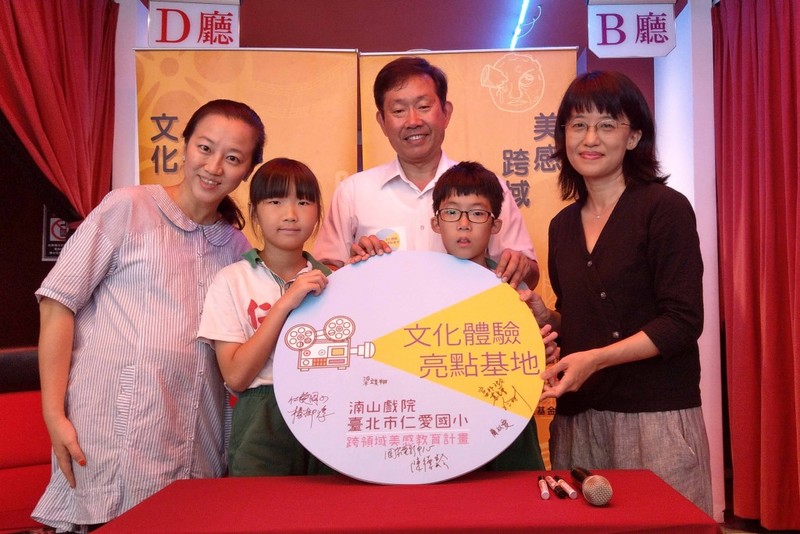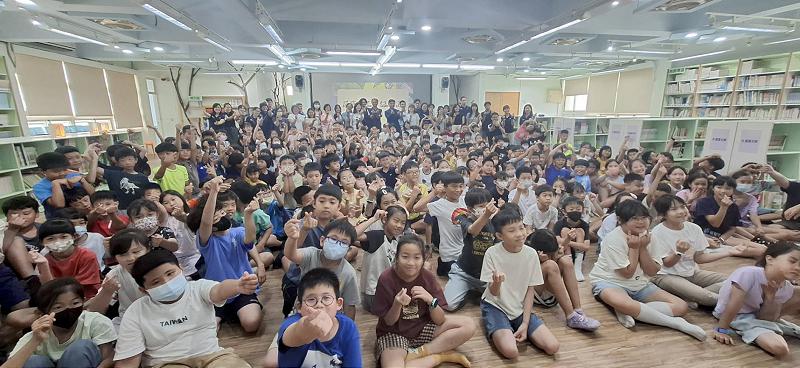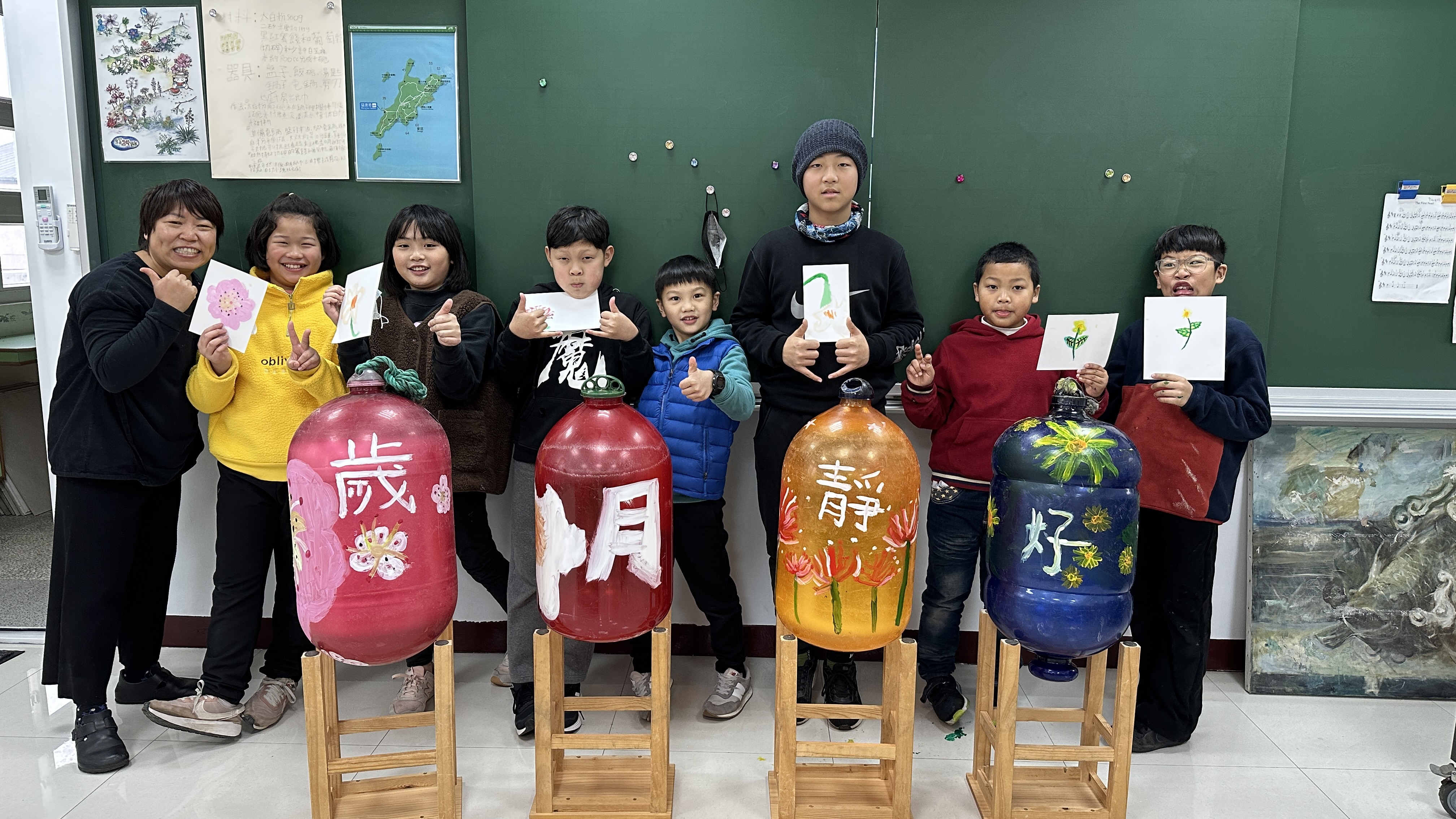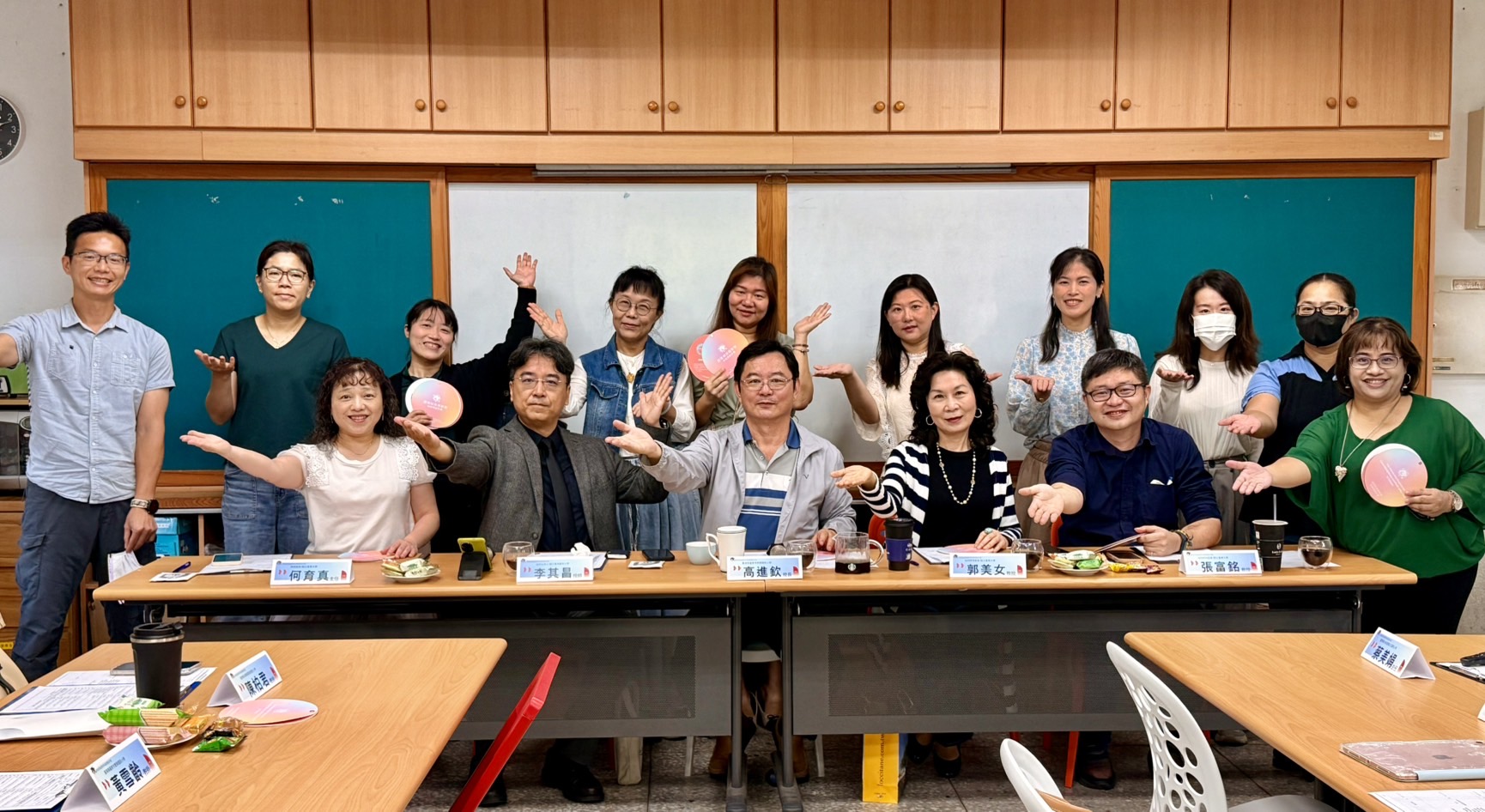Fubon Cultural and Educational Foundation’s Cross-domain Aesthetics·Cultural Experience·Community Viewing Experience

News source: Taiwan English News
News link:https://www.taiwannews.com.tw/ch/news/3469072
Taipei City Renai Elementary School, Fubon Cultural and Educational Foundation, and Nanshan Cinema will work together to launch a community movie-watching experience program for students aged 6 to 12 years old. Based on a movie theater, it will connect with surrounding schools, develop movie-watching courses, and lead students into Experience the magic of movies in the cinema and open up diverse horizons.
This year, Renai Elementary School in Taipei City used the Ministry of Education’s cross-field aesthetic education curriculum as the starting point to prepare for the 12-year national education literacy-oriented curriculum. Through the development and experimentation of a series of cross-field courses, the introduction of foundation resources and the joint preparation of lessons with teachers , teachers will then professionally develop the curriculum, and use an industry-university cooperation model to connect community resources to jointly practice children's aesthetic education. This cross-disciplinary cultural experience course of Taipei City Renai Elementary School will be the first tripartite cooperation between schools, industries and theaters in Taiwan to incorporate movie viewing experience into the school curriculum. At the same time, it is also hoped to bring cultural experience into the school curriculum and cultivate Literacy of future citizens. In the future, we hope to use the power of the foundation to promote this pilot model to more areas across Taiwan and establish a long-term community-based imaging education program.
Since 2014, with the goal of cultivating independent thinking skills, the Fubon Cultural and Educational Foundation has launched a youth film education program, the "National Touring Film School", touring all over Taiwan to bring diverse films to young people. In the past, video education was not taken seriously in Taiwan, and most of it was the sporadic efforts of individual teachers and units. Reflected on the experience of the youth video education scene, what is shown is that the movie viewing experience of teenagers lacks diversity. Therefore, since 2018, the Fubon Cultural and Educational Foundation has extended the age of video education downwards, with the goal of accumulating diverse movie-watching experiences at the schoolchildren stage and experiencing the power of movies and sounds in a good movie-watching environment in the theater. And through the diverse content of the film list, they are exposed to cultures from all over the world, stimulating their interest in various images, cultivating diverse viewing habits, allowing children and teenagers to repeatedly compare and organize their own experiences and opinions, and then Understand and participate in culture.
In this cooperation, Taipei City Renai Elementary School and the Fubon Cultural and Educational Foundation have connected the Nanshan Theater. The Nanshan Theater on Tonghua Street showcases different movie charms in the East District, which is surrounded by large theaters. Nanshan Theater opens educational programs in addition to existing screenings, opening a new page for Taiwan's video education and becoming a highlight base for cultural experience. The first wave of screenings of this collaboration was the Norwegian documentary "Solveig Melkeraaen, 2017" (2017), a Norwegian documentary film, which was attended by 14 fifth-grade classes from Renai Elementary School in Taipei City.
"Winter Vacation Diary of a North Sea Fishing Village" is about a nine-year-old girl from Oslo, Eva, who returns to her mother's hometown during the winter vacation to work cutting cod tongues and working with a ten-year-old boy, Tobias; in northern Norway, children Starting at the age of six, you can go to the factory to cut cod tongues. "This is a tradition," and both children have plans for the pocket money they are about to earn. The students who participated in the screening were amazed when they saw the close-up shots of cod heads soaked in blood on the screen and the images of children in the factory using daggers to cut cod tongues; after the screening, teachers in each hall Led a brief post-screening discussion and asked about the most impressive scenes in the film and their guesses as to why the director included these scenes. Each student had a different point of view: the scene that impressed some was a reminder at the end of the film. The scene of Bias driving a boat and taking Eva for a ride on the sea was because "the director wanted to show the results of the two of them's hard work." After watching the movie, some students said they were going to Canada during the summer vacation and wanted to go to the maple sugar factory. While working part-time, some people said that they had to spend eight hours a day in the calligraphy classroom. In addition to observing the arrangements in the movie, the children also connected with themselves in the film.
After the screening, the "Cross-Border Aesthetics·Cultural Experience·Community Viewing Experience Press Conference" invited Principal Yang Liuchun of Renai Elementary School, Leng Bin, Director General of the Fubon Cultural and Educational Foundation, Chen Deling, Deputy CEO of the National Film Center, and the National Education Counselor of the Education Bureau. Tian Zhiling, the full-time counselor of the group, and other guests attended. Leng Bin, Director General of Fubon Cultural and Educational Foundation, said that this cooperation is an important step for Taiwan and the beginning of the connection between education and cultural experience, community and campus. He hopes to promote this experience to the whole of Taiwan, and to the Ministry of Education and Culture Ministry initiative. Deputy CEO Chen Deling specifically said that the Ministry of Culture released a cultural experience plan this year, which has a platform connection with the Ministry of Education. Deputy CEO Chen also said that movies are a good cross-field learning medium and can inspire children to The concept of new experiences of art, vision, and multimedia and movie-watching habits will also be of considerable help to the sound industry in the future. The National Film Center plays the role of a window in this process, hoping to call on and promote more local theaters and theaters that are about to wither. The National Film Center collaborates to see more possibilities and convey the good inspiration that movies can bring to the government and the public.



